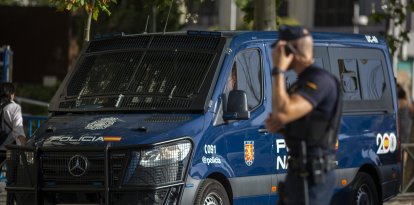Spain votes: the decisive battle between social-communism and conservatism
The right wing is the favorite on Sunday in what is expected to be a tight election, according to polls. Voz Media and Mega TV will provide extensive coverage.
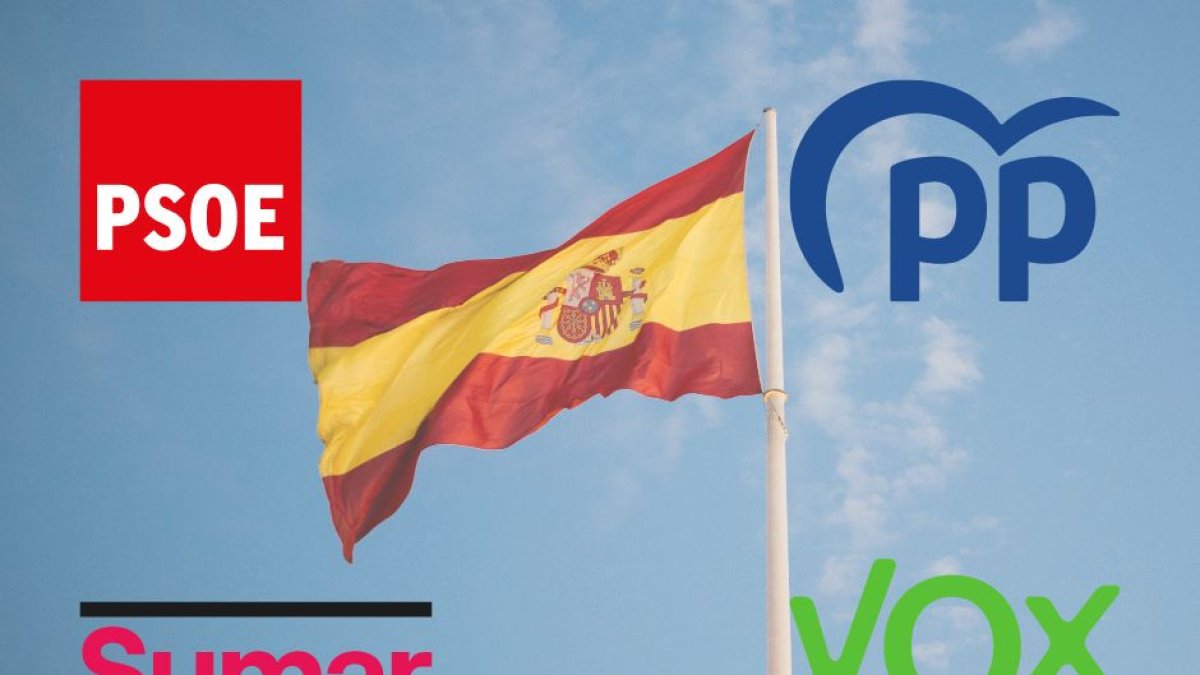
(Voz Media-Unsplash-Wikimedia Commons)
On July 23, general elections will be held in Spain. Citizens will have to decide whether the course of the country will continue to be steered by social-communism or whether to return power to the right. Voz Media and Mega TV will provide extensive coverage of the decisive vote.
Current President Pedro Sánchez (51 years old) was forced to move the vote forward after the electoral setback he and his party suffered in the regional and municipal elections less than two months ago. It was originally scheduled for the end of this year. His party, the Spanish Socialist Workers' Party (PSOE) lost much power in many Spanish regions, cities and towns in May.
In these general elections, there are two candidates who aspire to inhabit the Palacio de la Moncloa, the official residence of the President of Spain, and two others who may be the key to forming a government.
Pedro Sánchez (PSOE)
Since taking office in 2018, Sanchez has seen his popular support drop year after year. He was sworn in as president after submitting his predecessor in office, Mariano Rajoy, to a motion of censure. This procedure, consisting of holding the president politically accountable and replacing him without the need to call an election, was approved by the majority of the deputies but by a small margin: 180 voted in favor as opposed to 169 who voted against. There was one abstention.
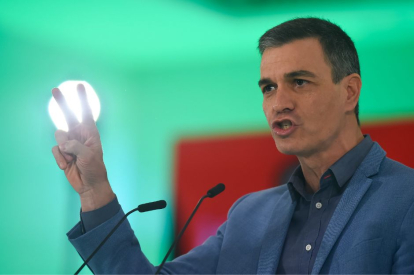
Pedro Sánchez, President of Spain.
The following year, Sanchez called a general election with the aim of achieving greater public support and a greater number of deputies for his party. He won, but the elections had to be repeated after he failed to get enough parliamentary support to form a government. In these second ballots, he won again, but even further away from the much coveted 176 deputies that mark the absolute majority. Even so, to revalidate the presidency, he had to accept a coalition government with Podemos, a far-left party. They also needed the support of autonomous parties seeking independence from Spain for the regions they represent and other “regionalists.”
After almost four years in office and a management highly criticized by Spanish citizens, based on radical left-wing policies and the woke agenda, Sánchez is hanging on by a thread. The polls have not been kind, except for those elaborated by the public organization Centro de Investigaciones Sociológicas (CIS). Most polls, however, place Sánchez and PSOE in second position in this Sunday's elections.
Alberto Núñez Feijóo (PP)
These are the first general elections for Alberto Nuñez Feijóo and his first electoral experience on a national scale. He was previously president of the autonomous community of Galicia, located in the northwest of the country, where he was born. He held this position from 2009 until his resignation in 2022. It was then that he made the leap to national politics. After an internal crisis within the Popular Party (PP), Feijóo (61 years old) has been the president of PP, the current leader of the opposition, since April 2022. He is also a senator.
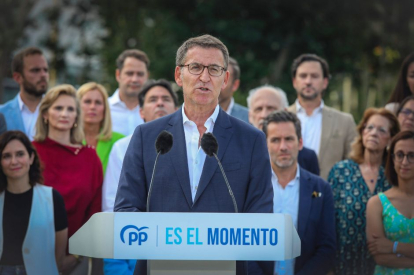
Alberto Núñez Feijóo, leader of the Partido Popular (Spain).
The regeneration of PP was in his hands. Núñez Feijóo heads into the general elections as a big favorite. Most polls project him as the winner, although he would not obtain the absolute majority, and everything points to a scenario where he has to form a coalition government if victorious.
Santiago Abascal (Vox)
A former PP member, Santiago Abascal (47 years old) is the youngest of the four main candidates for the Spanish presidency. During his youth, he and his family experienced firsthand the death threats from the terrorist group ETA in the autonomous community of the Basque Country.
As a member of PP, he was a councilor in the city council of Llodio (a small town located in the Basque Country) and a congressman in the Basque Parliament. He left the party in November 2013 due to disagreements with PP leadership on issues such as the unity of Spain and anti-terrorism policy. A month after his departure, he founded Vox, the party with which he has reached the Congress of Deputies. In the first elections held in 2019, Vox and Abascal achieved 24 deputies. It was in the electoral repetition where they managed to significantly increase their legislative representation, obtaining 52 deputies and becoming the third most-represented political party in the Congress of Deputies.
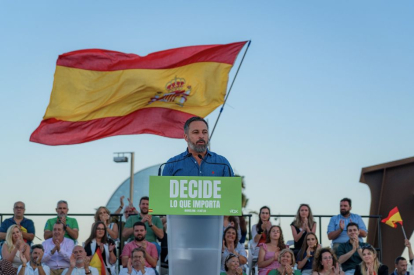
Santiago Abascal, leader of Vox (Spain).
For these general elections, the vast majority of pollsters project the Vox candidate to finish third, despite the media campaign against the party, and see Abascal as a transcendental figure for the formation of a hypothetical government with PP. A coalition of both parties would culminate the country's ideological shift from left-wing radicalism and populism to conservatism.
Yolanda Díaz (Sumar)
Yolanda Díaz (52 years old), a loyal communist and the current second vice president of the government and minister of labor and social economy, will try to keep the most extremist version of the left in power. The party she heads, Sumar, is an alliance of several political parties with a feminist and environmentalist platform which advocate for multinationalism in Spain.
She was a member of the Communist Party of Spain (PCE), and later became a member of Izquierda Unida (IU). She began her political career at the local level as a councilwoman of the City Council of Ferrol, located in Galicia. She later became a member of the Galician Parliament and, in 2016, as a member of the political party Podemos, she made the leap to the Congress of Deputies. In 2021, President Pedro Sánchez appointed her third vice president of the coalition government. Months later she was appointed second vice president.
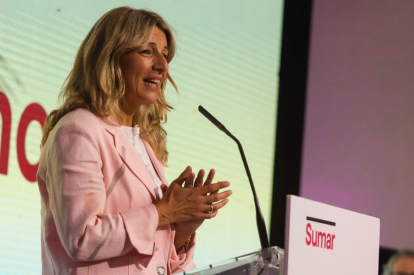
Yolanda Díaz, leader of Sumar (Spain).
Diaz aims to prevent the progressive deterioration of the far left in Spain. Polls predict that the Sumar candidate will come in fourth place. For the left to have a chance of governing for four more years, the number of deputies it obtains will be key to the formation of a new government.
Other political parties
All political parties currently represented in parliament are running again except for one: Ciudadanos. Some of them were necessary for Pedro Sánchez to be elected president in 2019, such as the Catalan pro-independence Esquerra Republicana de Catalunya (ERC) or the Basque Nationalist Party (PNV). Also EH Bildu, political heir of the terrorist group ETA, which abstained in Sánchez’s election.













